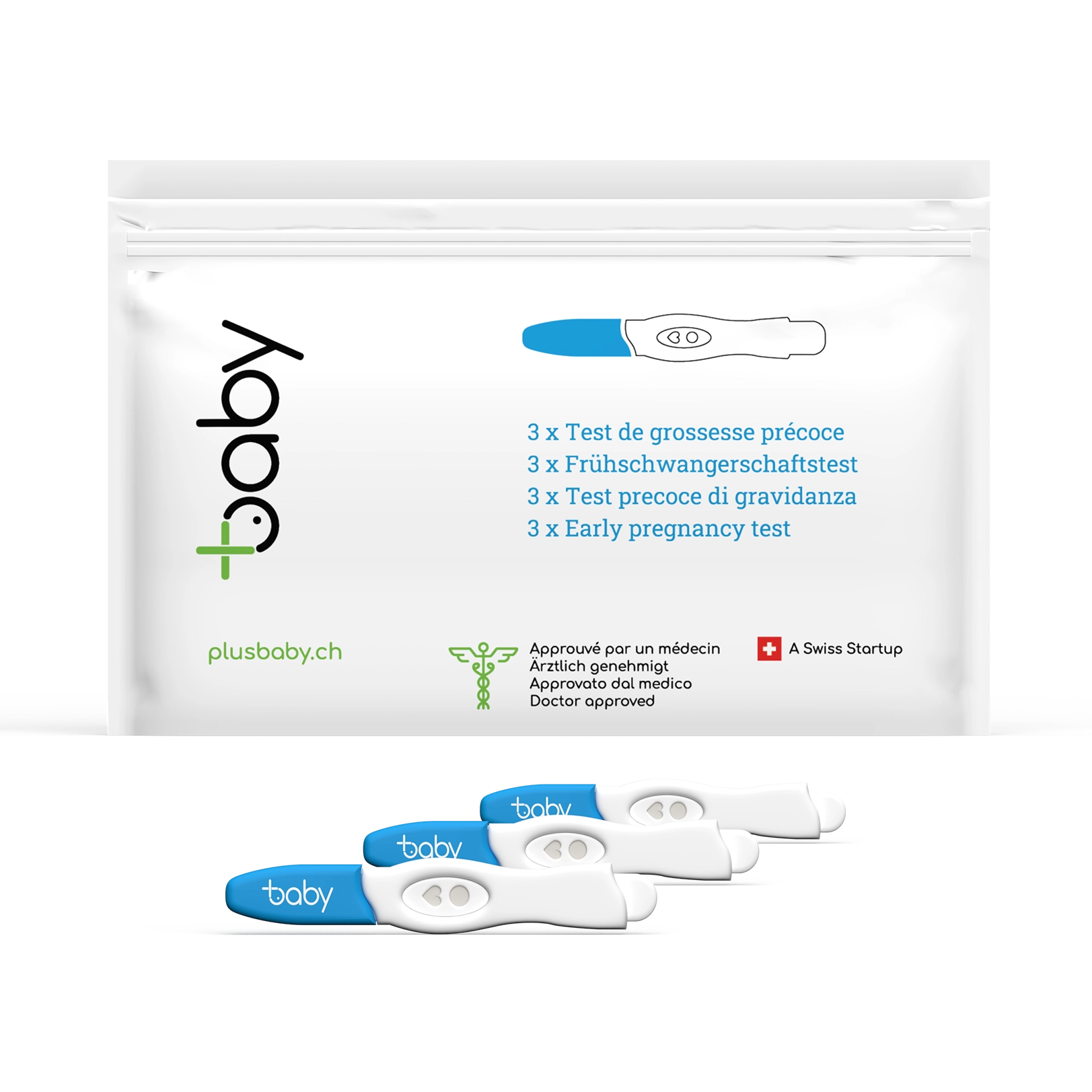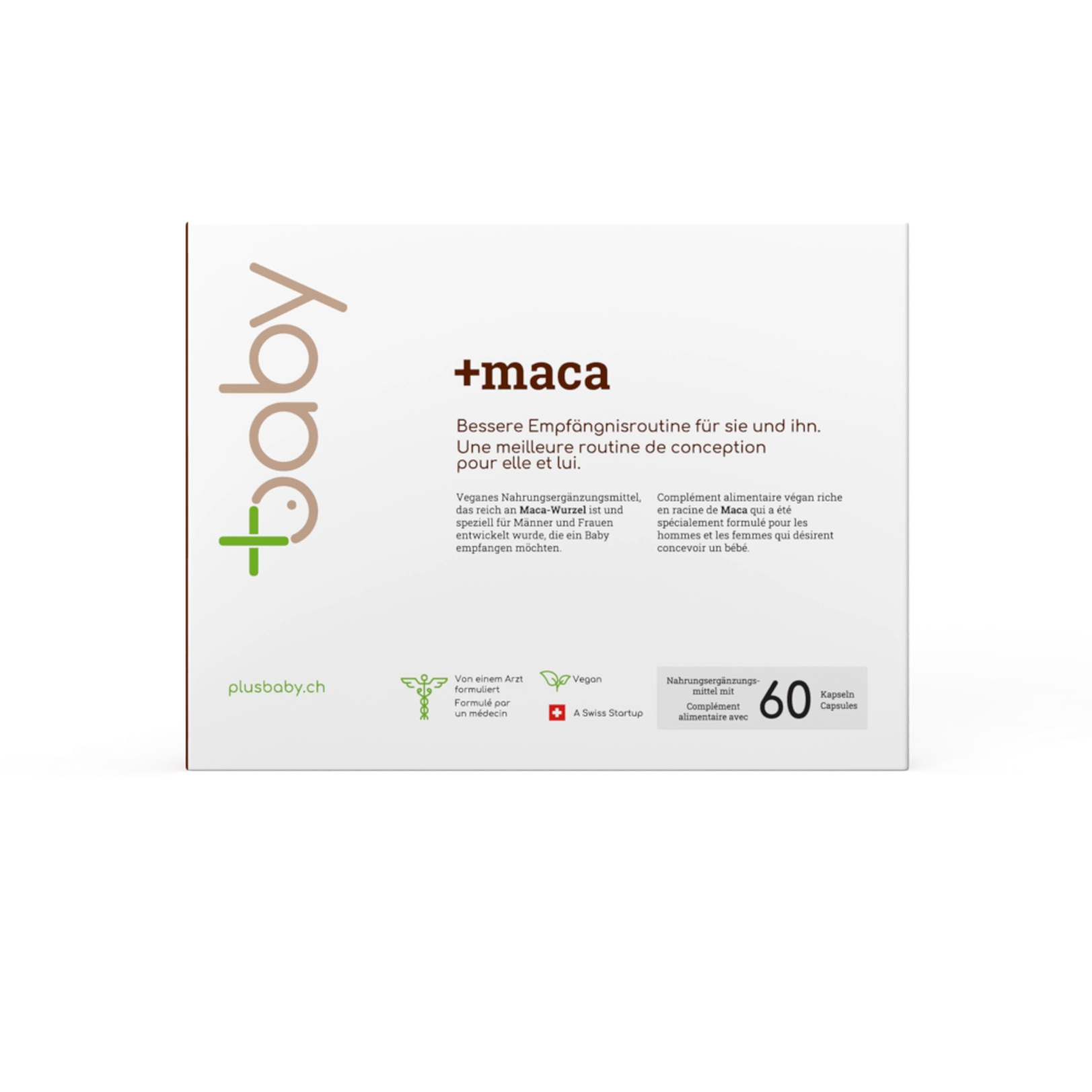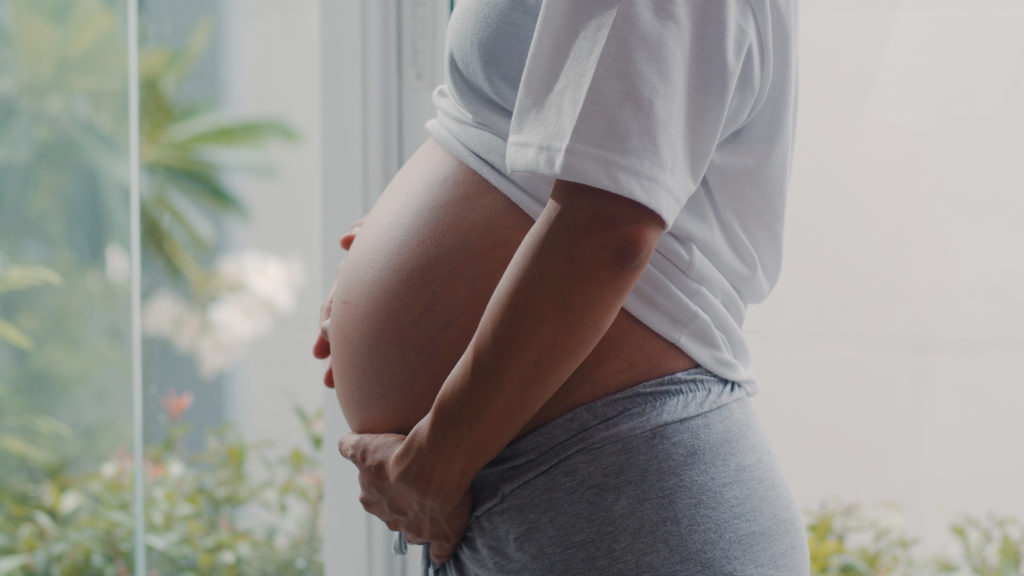Want to find out when to take a pregnancy test? In this article we try to work it out. The excitement and anxiety of waiting to find out if you're pregnant can be overwhelming. The anticipation of a potential new chapter in life brings a mix of emotions, from hope and joy to nervousness and uncertainty. During this crucial period, timing plays an important role in getting the most out of your pregnancy. precise results. Knowing when to take a pregnancy test can make all the difference in getting the answers you need and giving you peace of mind as you embark on this adventure.
The accuracy of a pregnancy test depends largely on when it is taken after conception. If you take a test too soon, you run the risk of getting a false negative, which will leave you uncertain and needing to retest. That's where Plusbaby pregnancy tests come in, offering a reliable solution for early detection. Our high-sensitivity tests are specially designed to provide accurate results, even up to three days before your expected period, so you can test with confidence at the right time.
Understanding the pregnancy test window
How do pregnancy tests work?
Pregnancy tests detect the hormone hCG (human chorionic gonadotropin), produced by the placenta after implantation of a fertilized egg in the uterus. In general, hCG becomes detectable in urine 10 to 14 days after conception. Highly sensitive early detection tests can identify this hormone even before the expected date of your period.
The role of your menstrual cycle
Understanding your the menstrual cycle is essential in determining the best time to take a pregnancy test. Knowing your ovulation date allows you to estimate when conception may have taken place, while tracking your expected period date lets you know when hCG levels should be high enough to be detected. Testing too early, before hCG levels have risen, can give an inaccurate reading, so timing your test to coincide with your cycle maximizes accuracy.
When to carry out a pregnancy test calculation?
Early test
Early testing, particularly three days before your expected period, can provide interesting results, but has its limitations. While early detection offers peace of mind, hCG levels may still be too low to detect. Plusbaby's high-sensitivity pregnancy tests are specially designed to detect these lower levels, offering reliable results even before you miss your period.
Test on the day of absence of menstruation
Tests performed on the first day of a missed period often give the most accurate results, since the levels of hCG have had more time to grow. Our flexible pregnancy tests allow you to test early and again on the day of your missed period, maximizing your chances of getting an accurate result and reducing stress.
Late test (a few days after the absence of menstruation)
Waiting a few days after the absence of a period gives a more definitive result, as hCG levels are higher and more easily detectable. With our 3-test pack, you can comfortably test before the expected day of your period, on the day of the missed period, and one last time after a few days' delay, ensuring you have enough tests for every stage of your journey to clarity. It's for this very reason that Plusbaby has created packs of 3 pregnancy tests.
Using Plusbaby pregnancy tests effectively
Step-by-step guide
To use our pregnancy tests, urinate directly on the strip or dip it into a cup of collected urine for a few seconds. Wait a few minutes for the results. For optimum accuracy, test in the morning, when hCG levels are most concentrated.
Maximizing precision
To maximize test accuracy, use morning urine, which has a higher concentration of hCG. Follow instructions carefully, as incorrect use may lead to false positive or negative results. Our tests are designed to give reliable results.
Why are Plusbaby pregnancy tests the solution to your calculations?
Clinically proven accuracy
Our pregnancy tests are clinically validated with an accuracy rate of 99%, making them exceptionally reliable. These highly sensitive tests are designed to detect hCG levels even before your expected menstrual period, guaranteeing early and accurate results for your peace of mind.
Designed for practicality
The pack of 3 tests Plusbaby pregnancy testers can test at different stages of your cycle. You can start testing three days before your expected period, on the day you miss your period, and again afterwards for greater assurance.
Peace of mind and confidence
Our pregnancy tests give you emotional reassurance by making it easy to check and double-check your results. With three tests to choose from, you can follow your results with confidence throughout your cycle.
Common questions about pregnancy tests
What happens if the test is taken too early?
Testing too early may result in a false negative, as hCG levels may not be high enough to be detected. It is advisable to wait a few days before retesting to ensure that hormone levels have risen sufficiently to allow accurate detection. An early test can be misleading if performed before the hormone is sufficiently present in the urine.
What happens if the test is negative but you still haven't got your period?
If you receive a negative result but still haven't had your period, consider waiting a few days before retesting. If your period remains absent or irregular, consult a healthcare professional to explore other potential causes or problems.
Timing is everything when it comes to accurate pregnancy test results, and Plusbaby pregnancy tests are designed to help you through the process. Whether you test early, on your missed period or a few days later, these tests are flexible and reliable. Trust our high-sensitivity tests to guide you with confidence, and consult a healthcare professional for personalized advice. Explore and purchase our pregnancy tests today to ensure a reliable, stress-free pregnancy testing experience.
When should I take a pregnancy test?
We recommend you take a pregnancy test about a week after your expected period, i.e. about 14 days after ovulation. This ensures that the level of the hormone hCG (human chorionic gonadotropin) is high enough to be detected by the test. If you have regular cycles, you can calculate the ideal date by adding 14 days to the date of your last ovulation. In the case of irregular cycles, it's advisable to wait at least 21 days after unprotected intercourse to obtain a reliable result.



















